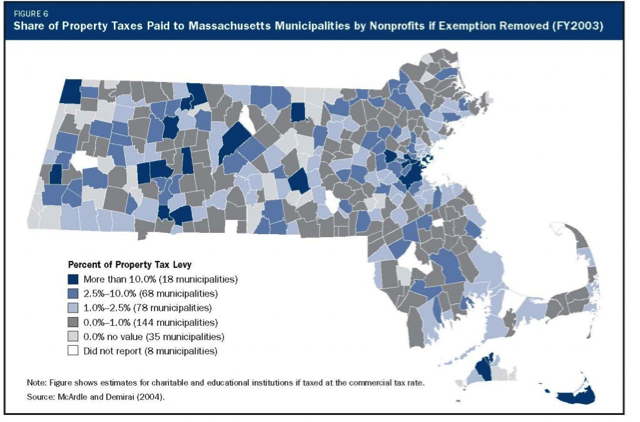An Act to Protect Elderly Tenants
MassLandlords has drafted legislation, "An Act to Protect Elderly Tenants," that would protect elderly tenants from eviction and displacement. Our association goal is to create better rental housing by helping owners, so this measure might seem off-mission. But Mayor Walsh in Boston has filed his own, worse Act to Protect Elderly Tenants, which calls for rent control for seniors and didn’t have any owner input. MassLandlords’ mission is best fulfilled by offering this better alternative to the Mayor’s partisanship.

Why We Need to Protect Elderly Tenants
Residents age 75 and over are the most vulnerable to rising housing costs, eviction, and displacement. Displacement in particular can be a real serious setback to an elderly tenant's health and wellbeing. Elderly tenants rely on medical and social support systems being nearby or accessible to them. Doctors, friends, and family with long history are the best able to provide help. Life is never easy, and particularly for seniors, as health problems arise and social circles narrow, it is vital that elderly tenants be assisted to remain in their housing of choice with dignity.
It is particularly important to note that most pensions and retirement accounts do not grow fast enough to keep pace with the rising cost of housing. We have a shortage of housing due to zoning and subdivision restrictions. Also, many factors that play into rents are increasing quickly: real estate taxes, hourly rates for plumbers and electricians, water costs, insurance, and interest rates all drive rents higher faster than an elderly tenant can afford.
Defending against eviction in Housing Court is a particularly traumatic and undignified way to spend one's twilight years. The Commonwealth should guarantee to its seniors that they will not experience this stress.
Why Elderly Tenants Should Have the Choice to Remain in Market Housing
Senior housing has a long waiting list, in many places, two years long. And elderly renters may not wish to relocate anyway. Once you're used to your kitchen, your walk to the post office, and your shuttle to the Senior Center where you have friends, it's hard to imagine turning all of that upside down.
Until Massachusetts eliminates restrictions on zoning and subdivision, and increases the supply of housing for all, our housing market will continue to fail to provide long-term housing for elderly tenants. If you lose your apartment, you can't move anywhere in the neighborhood. Everything else will be too expensive.
At the same time, too many seniors remain in substandard housing. Either from their own inability to maintain their premises or because they have resided in the premises for a long time, apartments may become in need of total renovation. It can prove very difficult and expensive to relocate an elderly tenant, and there is often no ability to pay the higher rent that a renovation would justify anyway. It is very difficult to maintain housing without at some point terminating the tenancy without stated cause and asking the elderly tenant to leave.
How to Afford Protections for Elderly Tenants
In Massachusetts, there remains substantial untapped resources to help elderly tenants make their payments. Consider, for instance, that tax-exempt organizations like private hospitals, nursing facilities, assisted living facilities, private colleges, and private schools pay no real estate tax whatsoever. These institutions can be requested to make "payment in lieu of taxes," but no such payments can be compelled.
As reported by the Boston Globe, successfully requesting payment in lieu of taxes can generate millions of dollars for communities like Brockton and Salem. Each of the 300+ Massachusetts municipalities can expect similar assistance, scaled to their situation. Payments in lieu of taxes should be mandatory to support elderly tenants.
A Way to Protect Elderly Tenants
Massachusetts is fortunate to not have to reinvent the wheel. We have a program called the Massachusetts Rental Voucher Program (MRVP). We should extend this program to guarantee the rent payments of each resident over the age of 75. Guarantees are more powerful than outright subsidies because they cover many more people than they actually need to pay for. Here is how an MRVP guarantee might work.
Each City and Town would forecast the cost to guarantee the rent payments of each resident age 75 or over in the next year. Cities and towns know who their seniors are from census data and from participation at places like the Senior Center. The state can use eviction statistics to estimate how likely it is that an elderly tenant will be unable to afford their rent payments over the next year.
Each City and Town would use census data, eviction rates, and HUD fair market rents to estimate how many elderly tenants are expected to be unable to afford their rent payments over the next year. The shortfalls can be added up to come up with a total program cost. A percentage can be added on for administration.
Each City or Town should then implement a guarantee that applies to all residents over the age of 75. We don't know which residents will be unable to pay, but we have estimated what the guarantee will cost overall.
How do we fund this? Consider one possibility related to the fact that non-profit institutions don't pay real estate tax. Specifically hospitals, assisted living facilities, nursing homes, private schools, and private colleges may have 501(c)3 status and be exempt from taxes. These organizations, if not already subsidized by the public, should make yearly Payments In-Lieu of Taxes such that the next year’s forecast cost of the guarantee plus administration will be covered. Healthcare facilities should object least to this, as seniors who remain stably housed will have fewer serious or unattended health consequences and better outcomes overall. Educational institutions may object more, but they should remember that seniors may vote against public support to educational institutions for cost reasons, but that these objections ought to be lessened to the extent that we guarantee aging in-place with dignity.
These payments should be collected by the municipalities and sent to the Massachusetts Rental Voucher Program or the Affordable Housing Trust Fund. As reported by TrendCT, there are still untapped millions in Massachusetts.

Many municipalities are missing out on 10% of tax revenue from tax-exempt organizations not paying PILOTs.
If a situation arises where, due to economics and market forces, an elderly tenant becomes unable to pay rent, their landlord will serve them with a court summons for nonpayment. In this case, that resident should be identified by the court and helped to apply for the MRVP guarantee. There will need to be intake documentation. We can learn from programs like the Tenancy Preservation Project, which are expert at helping seniors especially overcome any disability that destabilizes housing.
Once an application is made, the MRVP should pay the Court all the money needed to pay for that renter's arrears. This is in contrast to the current MRVP, which has a waiting list years long. We need to have the non-payment case dismissed as soon as practicable.
Any elderly tenant receiving such a guarantee should have their unit inspected by the MRVP program, as is usual, and repaired at the landlord's expense, as required by the program. Landlords are already required to maintain their premises. Receipt by an elderly tenant of a sudden MRVP guarantee should not be a concern to any scrupulous owner or manager.
The elderly tenant should be issued a limited MRVP voucher that covers only the foreseeable shortfall in rent. Suppose the rent has increased by 5% and this is too much, but the renter could afford the base rent. Then the MRVP should pay just the 5% rent increase. It does not have to be used as it is normally used for low income households, which pay no more than a third of their income to rent. If the elderly tenant needs to make up a little, that is what the program can cover. In this sense, the MRVP guarantee can be extremely cost effective.
The elderly tenant will recertify yearly and have their MRVP payment adjusted as required to remain stably housed. Maybe they won the lottery, and the payment can be discontinued. Maybe rent has increased again, and it's still fair for the area. In that case, the MRVP can pay the increased rent. This is the same for any MRVP voucher. Allowing market rent increases keeps the elderly tenant stably housed indefinitely, wherever they are fortunate enough to reside.
If a community doesn't have any tax-exempt organizations where no such "payments in lieu of taxes" can be collected, then the MRVP program should define an extra contribution amount that it asks of all the other communities to make up the shortfall for the seniors in these towns or cities. Alternatively, to reduce disparities across communities, the Legislature could devise a funding formula similar to the one it uses to ensure that every school district in Massachusetts has a foundation budget.
Why a Guarantee to Protect Elderly Tenants is Better than Any Other Regulation
Guarantees have been used successfully in locations as diverse as Seattle, Los Angeles, Lancaster County Pennsylvania, Norfolk County Virginia, and Boston to help Section 8, homeless families, and other renters. We were effective at starting the Insurance Against Homelessness guarantee in Boston in 2017.
Guarantees offer a form of financial leverage that allows us to protect many more than we actually pay for. Any elderly tenant who doesn't need the money doesn't get it. The fortunate few who enter retirement well-heeled are guaranteed the same as any other elderly tenant in case of disaster. But there is likely no cash payment ever to be made.
An Act to Protect Elderly Tenants Full Text
The text below was accurate as of drafting January 11, 2019. The text may be changed at filing or subsequently. For the latest version, check the Massachusetts Legislature website. The 191st General Court called this bill H.1255.
Why an Act to Protect Elderly Tenants Should Not Contain a Just Cause Eviction or Rent Control Provision
Others are filing their own acts to protect elderly tenants. These bills are not written by -- and don't incorporate any input from -- those who actually provide rental housing: owners and managers. And these other bills will not achieve the desired result.
Suppose you capped rent increases at 5% a year using rent control. This is actually no help to an elderly tenant. Most pensions grow at less than 5% or not at all. After a few years of 5% rent increases, even a previously stable elderly tenant may become unstably housed. Rent control will fail to keep elderly tenants in their homes long-term.
Also, economists are unanimous on the fact that price controls create shortages, in housing and everything else.
Suppose you prevent "no cause stated" evictions by requiring just cause eviction for elderly tenants. First of all, note that very few elderly tenants are evicted with no cause stated. Secondly, note that even with our strong protections against discrimination, landlords still have discretion on whom to rent to. The tougher it is to remove a bad renter from an apartment, the fewer low-income or marginal applications will be given a chance. Just cause eviction will protect a handful of elderly renters who already have apartments and may be headed for "no cause stated" eviction. Just cause eviction will make it harder for 100% of all other elderly renters to get apartments in the first place. Landlords will not have to work very hard to find alternative renters with higher income who are not protected by just cause eviction laws.
Landlords are unanimous in their opposition to just cause eviction and rent control because it prevents us from doing our jobs. Anyone who advocates for just cause eviction or rent control should first read Wikipedia, which explains what economists know to be true: rent control does not achieve the desired policy results.
An Act to Protect Elderly Tenants Conclusion
We can and should protect every elderly tenant. This is why MassLandlords has drafted An Act to Protect Elderly Tenants and intends to advocate strongly that it ought to pass.
Policy proposals change fast. This proposal has not yet been evaluated by the MassLandlords membership. Questions or comments? Let us know what you think, hello@masslandlords.net.




